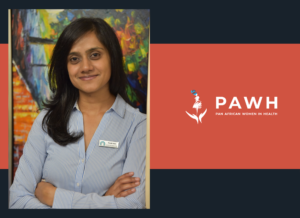 I am proud that I am a nurse and lactation consultant. When I started my training, I once heard a seasoned colleague say that ‘wherever you may go, whatever you may do, once you are a nurse, you are always a nurse’.
I am proud that I am a nurse and lactation consultant. When I started my training, I once heard a seasoned colleague say that ‘wherever you may go, whatever you may do, once you are a nurse, you are always a nurse’.
Tell us about yourself, what do you do in health?
I am a Certified Lactation Consultant and Registered Nurse, living in Johannesburg, South Africa. I am grateful to have found my calling: To support and empower families with practical, culturally sensitive and evidence-based information, in helping them to succeed on their personal breastfeeding journeys.
Before I had my own children, I thought that breastfeeding was a simple and natural process that would automatically kick-in once a child is born. However, my own experiences as a mother, and watching the experiences of many other women, made me realise that this is not the case. I learnt that during the birthing process, it is not only a child that is born, it is also a mother, who requires care, support and encouragement to grow, develop and succeed in her new role.
I am excited about establishing and growing my lactation consulting practice, that offers clients a choice of: virtual, hospital and home lactation consultations. The range of my services span over the continuum of a parent’s breastfeeding journey- from the antenatal period, to the initiation, establishment and maintenance of a positive breastfeeding relationship. I assist mothers with breastfeeding complications and cases in which there may be complex social circumstances and medical conditions related to the parent and/or the infant. I am able to support families regarding the safe cessation of breastfeeding when they are ready, and am also able to advise on aspects such as the introduction of solids and the return to work.
The reality of returning to work after having a baby, has been found to be a major barrier to the initiation and continuation of breastfeeding. Using my interest and knowledge of occupational health nursing and wellness through my Masters in Nursing (Occupational Health), one of my goals is to raise awareness and services about breastfeeding support in the workplace through my corporate lactation programme. This is so that the advantages of breastfeeding may benefit not only a baby and the mother, but also the mother’s employer through decreased costs, increased loyalty of employees and increased productivity.
Having laid the foundation of my practice by becoming a South African Certified Lactation Consultant (SACLC), I am currently working towards meeting the requirements to become an International Board Certified Lactation Consultant (IBCLC), in order to develop further and raise the level and quality of services that I am able to offer.
What led you to pursue a career in health?
I was born and raised in South Africa before I emigrated, as a teenager, with my parents and siblings to the UK in 2001. I always had an inclination towards the health sciences and wanted to choose a career in which I could help others. After shadowing health professionals of different disciplines, I made my decision to pursue a career in nursing. It was unchartered territory for me, as prior to me, we did not have a nurse in the family. Regardless, my parents were supportive and encouraged me to follow my heart. I had the opportunity to study towards my Masters in Nursing Science Degree at the University of Nottingham, which was one of the first universities in the UK to offer this type of graduate programme. Along with clinical excellence, we were taught to consider the bigger picture of healthcare, evidence-based practice and governance. I often wondered about these aspects pertaining to healthcare and nursing in South Africa, not realising that I would get to experience these first-hand, when I moved back to South Africa in 2011, to begin my married life with my husband.
What are you most proud of?
I am proud of my family: husband, children, parents and siblings. I would not have been able to be where I am in my career, without the loving support of my husband and family. I am proud that I am a mother, who despite complicated pregnancies, was able to achieve a Masters in Nursing (Occupational Health) from Wits University whilst on bed-rest. It was my role as a mother, that gave me my own profound experiences of lactation and understanding of gaps in service delivery. I was determined to fill these gaps, learn and become the support that I would have loved to have, when my children were born.
I am proud that I am a nurse and lactation consultant. When I started my training, I once heard a seasoned colleague say that ‘wherever you may go, whatever you may do, once you are a nurse, you are always a nurse’. I did not quite understand what she meant, yet looking back on my journey thus far, I can see how that has been the case for me too. The desire to care and comfort others is a powerful motivation to carry on, come what may.
What do you wish you had done differently?
At many junctures of my career, I would often question my decisions and inability to see how my various career choices (albeit in the health and nursing field) would fit together. I feel that we are sometimes too hard on ourselves to see results quickly, and do not realise that the real learning is happening in the process. I would have told the younger me, to be patient and have faith.
After my studies, I wish I had continued with the academic momentum and gone on to publish my research. However, there is a lot more to learn about breastfeeding and I hope to one day pursue my aspirations of a PhD, in order to publish research that will contribute to our understanding of human lactation.
What are some of the biggest challenges you have faced? How did you overcome them? What are some of the lessons learnt?
Having attained my qualification and post graduate experience of working as a Registered Nurse in the UK, the process to register and practice in South Africa was a long and arduous one. The emotional, financial, professional and administrative challenges often led me to question my decision to continue with my career in nursing. In these times, my own doubt and frustrations about the system, were my biggest challenges. In order to deal with this, I had to continuously reflect and remember why I chose to be a nurse, in the first place. Prayer and a strong intention to persevere, in order to care for and help people, kept me going.
As a lactation consultant and nurse, I aim to provide a high quality, professional service through my private practice. However, I found that my training was limited to clinical skill and I was not exposed to the opportunity to understand the business aspects of private practice. In that aspect, I feel that nursing programmes should include nurse entrepreneurship as part of the curriculum, to empower nurses to become independent and successful practitioners and providers of high-quality healthcare.
The journey to establishing a private practice and being an entrepreneur in healthcare industry can be confusing and lonely, but I am grateful for the business acumen provided to me by my husband and mentorship and guidance of my colleagues in the field.
What are some of the opportunities you see for women in health on the African continent?
I feel that there is so much opportunity in Africa to make a difference, help people and be financially successful. As women and competent healthcare professionals, we may be excellent at our clinical skills however, in order to translate that into a successful business that may have huge social and economic benefits, we need to learn to speak to each other, and learn from each other’s experiences so that we can uplift each other and our communities. Women, especially in South Africa are often sole providers and breadwinners of their families. We share similar struggles, in the attempt to balance social, family and financial responsibilities. So, if we help and empower each other, amazing things can happen.
There are definitely those who pursue a career in health to help others and have a positive impact on society, however, I feel that there are many people who are driven to work in the healthcare sector due to desperation, and not because they particularly feel passionate about the work. I believe that in order to be successful and to attract and retain the suitable talent, it is about invoking that passion at a grassroots level. So that young South Africans can aspire, with enthusiasm to want to become nurses and even lactation specialists.
What advice do you have for other women in health?
There is a lot of pressure on us as women, to fulfil many roles that we may have: of a mother, wife, daughter, healthcare provider and entrepreneur. It certainly is not easy and there is no set recipe for success. We do our best and we learn as we go. Things often do not go to plan, and my humble learnings thus far have taught me not to fight and resist unexpected changes to a plan. Sometimes that deviation is the best thing for us. We may have different backgrounds, specialties and stories but together, we have the ability to grow and empower those around us.
I have a great deal to learn in my personal and professional quests, however in whatever way that my experience may be of use, I would like to offer myself as a friend or mentor, to any aspirant on a similar path to mine, in order to bridge the gaps that exist in healthcare entrepreneurship. I believe that a kind word can go a long way, and you never know- it may just be the confidence and inspiration that another woman may have needed to hear in that moment, in order for her to continue on her journey.
I am grateful to have been invited to be a part of this wonderful network of strong and determined African women in healthcare. By acknowledging our past and having an awareness about our present, I look forward to our future.
